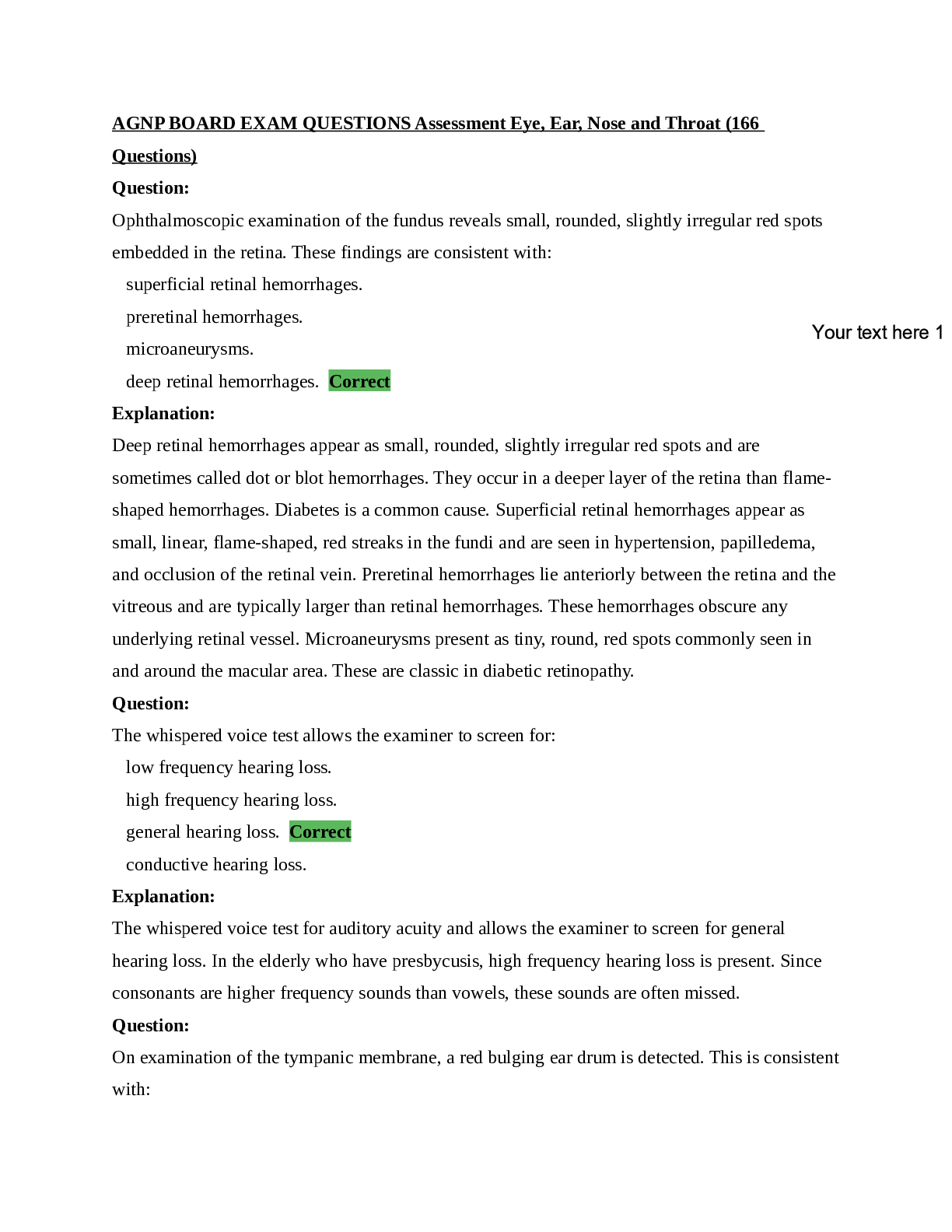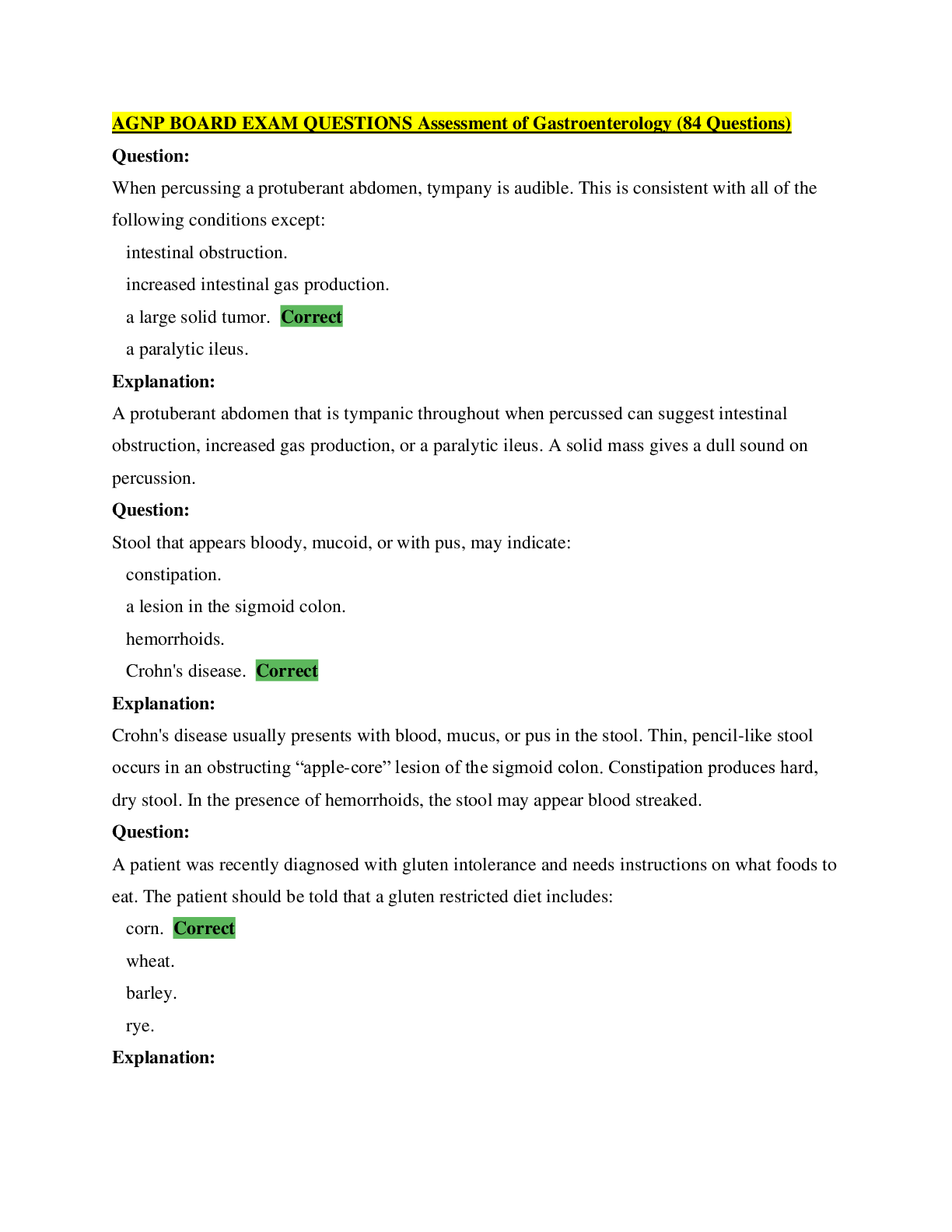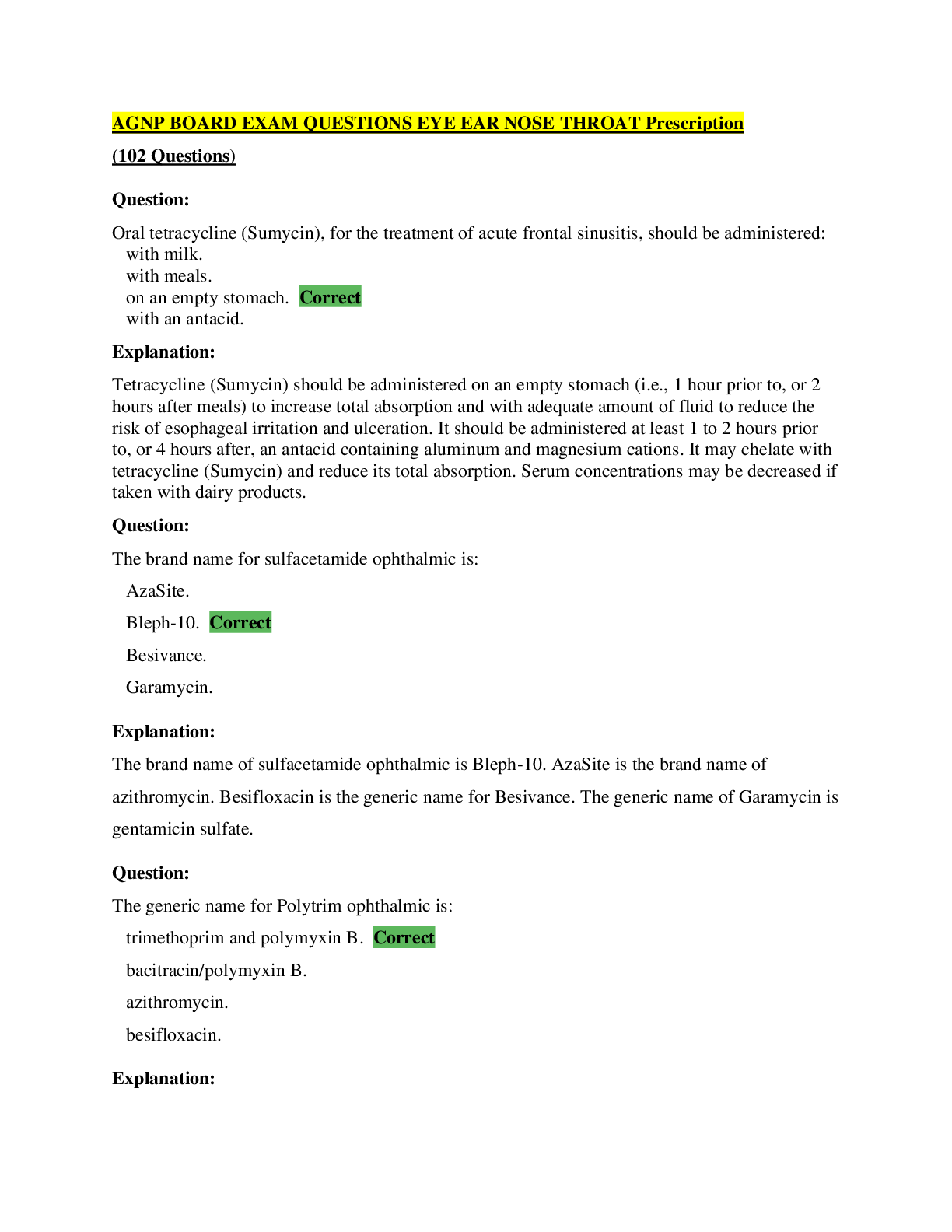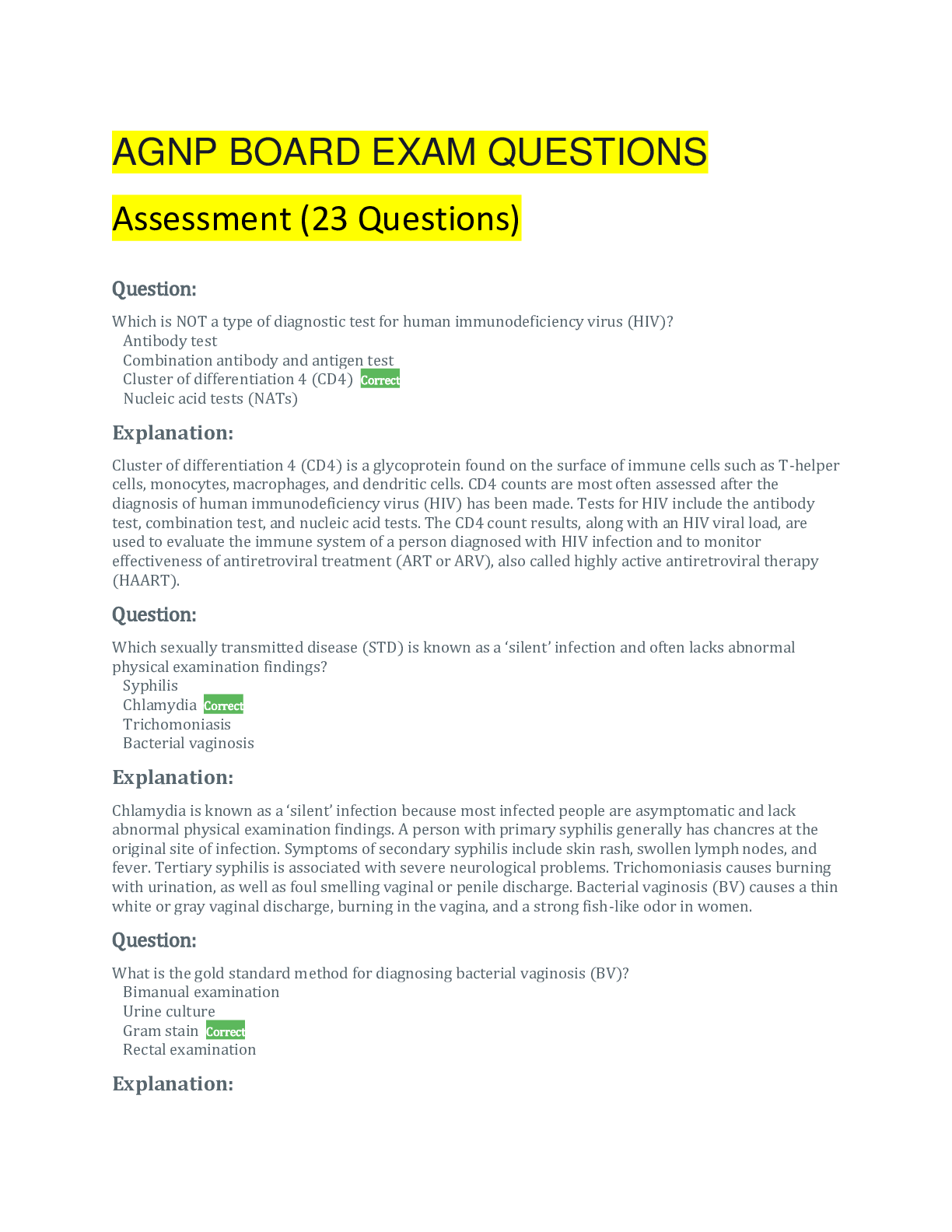*NURSING > EXAM > AGNP BOARD EXAM QUESTIONS Assessment question of Endocrinology (48Q),100% CORRECT (All)
AGNP BOARD EXAM QUESTIONS Assessment question of Endocrinology (48Q),100% CORRECT
Document Content and Description Below
The earliest recognizable clinical manifestation(s) of cystic fibrosis in an infant is: History of poor intestinal absorption Foul smelling, frothy, greasy stools Meconium ileus ... Salty taste on the skin Question: If a newborn is suspected of having congenital hypothyroidism, which clinical manifestation would be evident? Prematurity Hyperthermia Hyperactivity Enlarged anterior fontanel Question: The appearance of breast development in girls before the age of 8 years is termed: amenorrhea. gynecomastia. adrenarche. precocious puberty. Question: A butterfly-shaped gland located in the middle of the neck below the larynx and above the clavicles is the: parathyroid gland. thyroid gland. hypothalamus gland. thymus gland. Question: When auscultating the enlarged thyroid with a stethoscope, a bruit is suggestive of: a carotid aneurysm. a normal finding. hyperthyroidism. a thyroid malignancy. Question: During assessment of the thyroid, a fixed, firm, nontender large mass is noted. These findings describe: a cyst. a nodule. a goiter. hyperplasia. Question: A hormonal disorder in adults resulting from the overproduction of growth hormones is known as: gigantism. prolactinoma. acromegaly. congenital adrenal hyperplasia. Question: Hyperpigmentation of the skin and mucous membranes can be seen in patients who: acquired immunodeficiency syndrome (AIDS). Addison's Disease. Cushing's Disease. diabetes. Question: Women with hyperthyroidism often experience: oligomenorrhea. normal menstruation. amenorrhea. menorrhagia. Question: A 20-year-old with acanthosis nigricans should be evaluated for: acute renal failure. diabetes mellitus. alcohol-induced cirrhosis. hypothyroidism. Question: Which one of the following groups of symptoms would be more consistent in a child with type 2 diabetes mellitus? Blood glucose levels on two separate occasions between 75 mg/dL and 110 mg/dL, weight loss, and frequent urination Complaints of being hungry all the time, hyperactivity, and frequent urination Blood glucose levels on two separate occasions greater than 126 mg/dl, enuresis, and complaints of being tired Polyphagia, polydipsia, and polyuria Question: A 30-year-old woman is taking phenytoin (Dilantin) for seizures. She has recent hair loss and anorexia but is craving salty foods. Her lab results show abnormally high cortisol levels. These symptoms suggest: hyperparathyroidism. Addison's disease. anorexia nervosa celiac disease. Question: Based on the 2-hour glucose tolerance test (GTT), a positive result for gestational diabetes is: 120 mg/dL. 150 mg/dL 180 mg/dL 200 mg/dL Question: Which of the following is NOT a complaint of patients with type 1 diabetes? Polydipsia Polyuria Polyphagia Polycythemia Question: Hypofunctioning of the thyroid gland would lead to all the following disorders except: myxedema. Grave's disease. hypothyroidism. Hashimoto's thyroiditis. Question: The most common cause of death in children diagnosed with cystic fibrosis is: heart failure. respiratory failure. liver failure. renal failure. . Question: When assessing the thyroid gland, the nurse practitioner palpates for abnormalities while asking the patient to: cough. turn the neck. stick out tongue. swallow water. Question: A patient has an enlarged thyroid gland with an audible bruit. The examiner should suspect: hypothyroidism. a thyroid malignancy. hyperthyroidism. thyroiditis. Question: Myxedema is a symptom commonly found in patients diagnosed with: Addison's disease. hypothyroidism. thyroid nodule. adrenal insufficiency. Question: A 13-year-old girl presents with complaints of insomnia and hyperactivity along with gradual weight loss despite a good appetite. She has warm, flushed, and moist skin and unusually fine hair. These manifestations are indicative of which one of the following conditions? Hypothyroidism Hyperthyroidism Cushing's Syndrome Addison's Disease Question: Children with type 1 diabetes mellitus usually present with which one of the following symptoms? Obesity High cholesterol levels Polyuria Hypoglycemia Question: A six-year-old has a history of diabetes mellitus type I and is now experiencing cellulitis of the right lower leg. The child presents with deep, rapid, and unlabored respirations, fruity odor, and dry skin. These are symptoms of: Hypoglycemia Sepsis Stevens Johnson Syndrome Ketoacidosis Question: Which electrolyte is regulated by the parathyroid gland? Calcium Sodium Potassium Melatonin Question: Which of the following is NOT considered a benign tumor of the pituitary gland? Craniopharyngioma Prolactinoma Gonadotropin-secreting adenoma Thyrotropin-secreting adenoma Question: Which of the following is NOT associated with Hashimoto’s thyroiditis? Weight loss Cold intolerance Hair loss Decreased sweating . Question: A common clinical term used to refer to women with an excess growth of terminal hair in a male pattern is: androgenetic alopecia. alopecia. hirsutism. vellus hair. Question: Which hemoglobin A1C level is typically used to diagnose type 2 diabetes? 5% 5.50% 6% 6.50% Question: A sweat test is used to help diagnose: Graves' disease. hypothyroidism. cystic fibrosis. Crohn's disease. Question: Hyperfunctioning of the thyroid gland could lead to all the following disorders except: Grave's disease. thyrotoxicosis. myxedema. toxic goiter. Question: Symptoms of underdeveloped ovaries, web-like neck, and short stature are associated with: polycystic ovarian syndrome (PCOS). prolactinoma. Klinefelter syndrome. Turner syndrome. Question: A life-threatening symptom of parathyroid hormone (PTH) deficiency, hypoparathyroidism, is: dystonia. myoclonia. tetany. chorea. Question: A 29-year-old woman with systemic lupus erythematosus (SLE) complains of facial swelling. She has been on a prolonged course of corticosteroids. On assessment, moon face appearance is noted. She has most likely developed: Cushing syndrome. Addison's disease. Sjögren syndrome. Syndrome X. Question: A finding NOT identified in boys diagnosed with Klinefelter syndrome is: a low testosterone level. micro-orchidism. gynecomastia. a high sperm count. Question: Thyrotoxicosis is most commonly associated with: hyperthyroidism. hypothyroidism. thyroid nodules. nontoxic goiter. Question: A 9 year old girl had a history of tuberculosis when she was 6 years old. She presents with recent weight loss and anorexia. Along with her presenting symptoms, which one of the following assessment findings would be most indicative of Addison's disease? Thin, fragile skin and multiple bruises Hyperpigmentation and low blood pressure Blurred vision, headaches and enuresis Constipation Question: What is the earliest recognizable clinical manifestation(s) of cystic fibrosis in a child? Clubbing, frequent respiratory infections, and rectal prolapse Pigeon breast, protruding tongue, and exophthalmos Meconium ileus, abdominal distention, and hyperplasia of the lungs Hypoglycemia, hyperthermia, and tachycardia Question: Fruity breath odor correlates with assessment for: salicylate toxicity. diabetic ketoacidosis. urinary tract infection. acute pancreatitis. Question: Hyperplasia of the thyroid gland is caused by a deficiency of: phosphorus. iron. magnesium. iodine. Question: Symptoms of Graves' disease include: weight gain. bradycardia. anemia. proptosis. Question: A general term for an enlarged thyroid is: exophthalmos. a goiter. lymphadenopathy. acromegaly. Question: The presence of pubic hair in girls between the age of 5 and 8 years is termed: hypertrichosis. thelarche. adrenarche. adrenal hyperplasia. Question: Breastfeeding is contraindicated for an infant diagnosed with which one of the following conditions? Congenital hypothyroidism Phenylketonuria (PKU) Galactosemia Tay Sachs Disease Question: A common symptom noted in patients who have a thyroid goiter is: a frequent cough. decreased oral secretions. fatigue. gastric reflux. Question: Which of the following is NOT a symptom of polycystic ovarian syndrome (PCOS)? Acne Insomnia Infertility Hirsutism Question: A common arrhythmia associated with hyperthyroidism is: first-degree heart block. atrial fibrillation. ventricular tachycardia. sinus bradycardia. Question: Bilateral exophthalmos suggests: the presence of a goiter. Hashimoto's thyroiditis. Grave's disease. hypothyroidism. Question: When a patient presents with myxedema coma, which one of the following groups of symptoms may be present? Hypothermia, thickening of the tongue, and disorientation Dehydration, tachycardia, and tachypnea Diarrhea, hyperactive peristalsis, and abdominal distention Seizures, hyperthermia, and conjunctivitis Question: Examination of the hair reveals a sparse amount with a coarse appearance. This finding may be seen in patients who have: hypothyroidism. hyperthyroidism. type 2 diabetes. celiac disease. [Show More]
Last updated: 1 year ago
Preview 1 out of 26 pages
Instant download
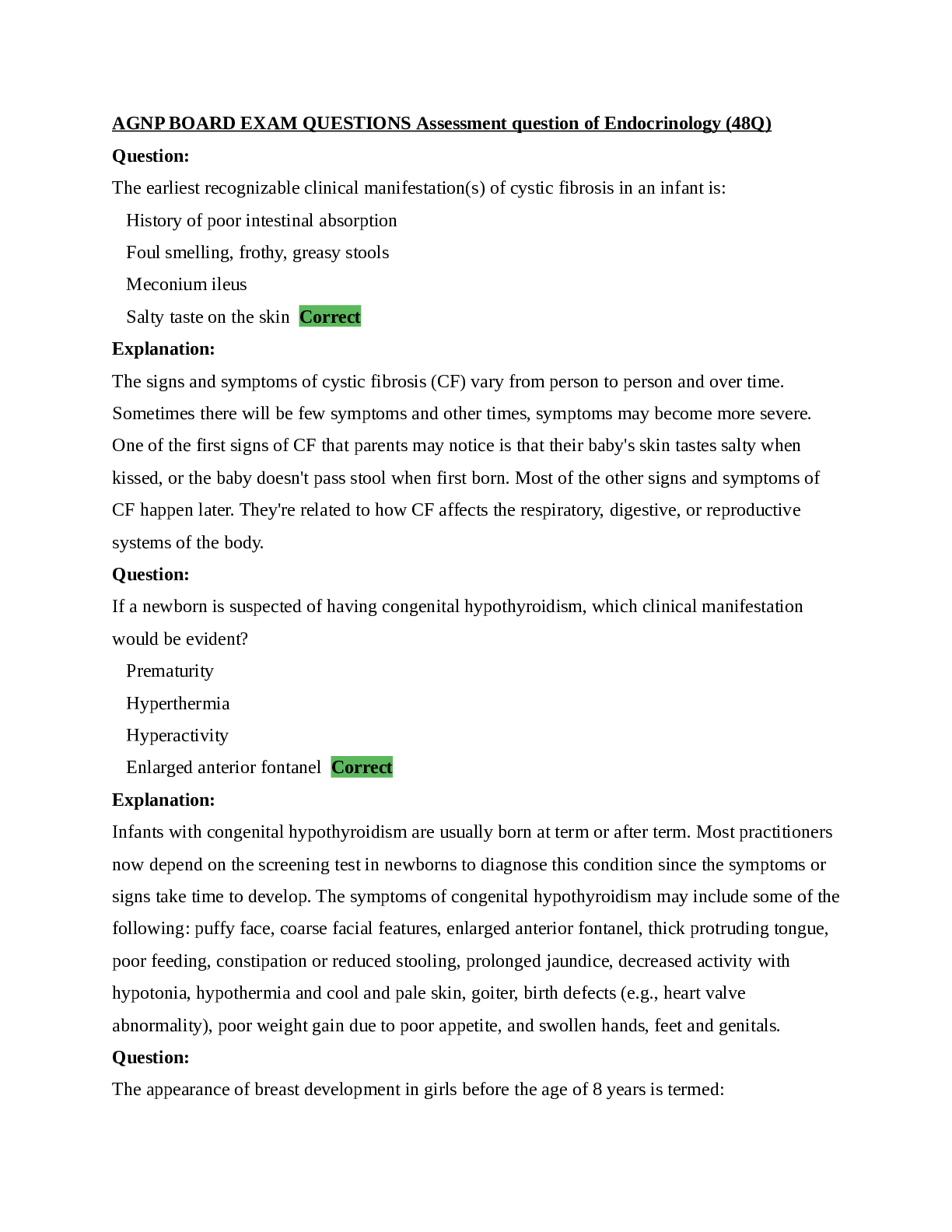
Buy this document to get the full access instantly
Instant Download Access after purchase
Add to cartInstant download
Also available in bundle (1)

AGNP BOARD EXAM QUESTIONS Assessment& Prescription of Endocrinology,100% CORRECT
AGNP BOARD EXAM QUESTIONS Assessment question of Endocrinology (48Q)/ AGNP BOARD EXAM QUESTIONS Prescription of Endocrinology (89 Questions)
By securegrades 3 years ago
$21
2
Reviews( 0 )
Document information
Connected school, study & course
About the document
Uploaded On
Jan 18, 2021
Number of pages
26
Written in
Additional information
This document has been written for:
Uploaded
Jan 18, 2021
Downloads
0
Views
55

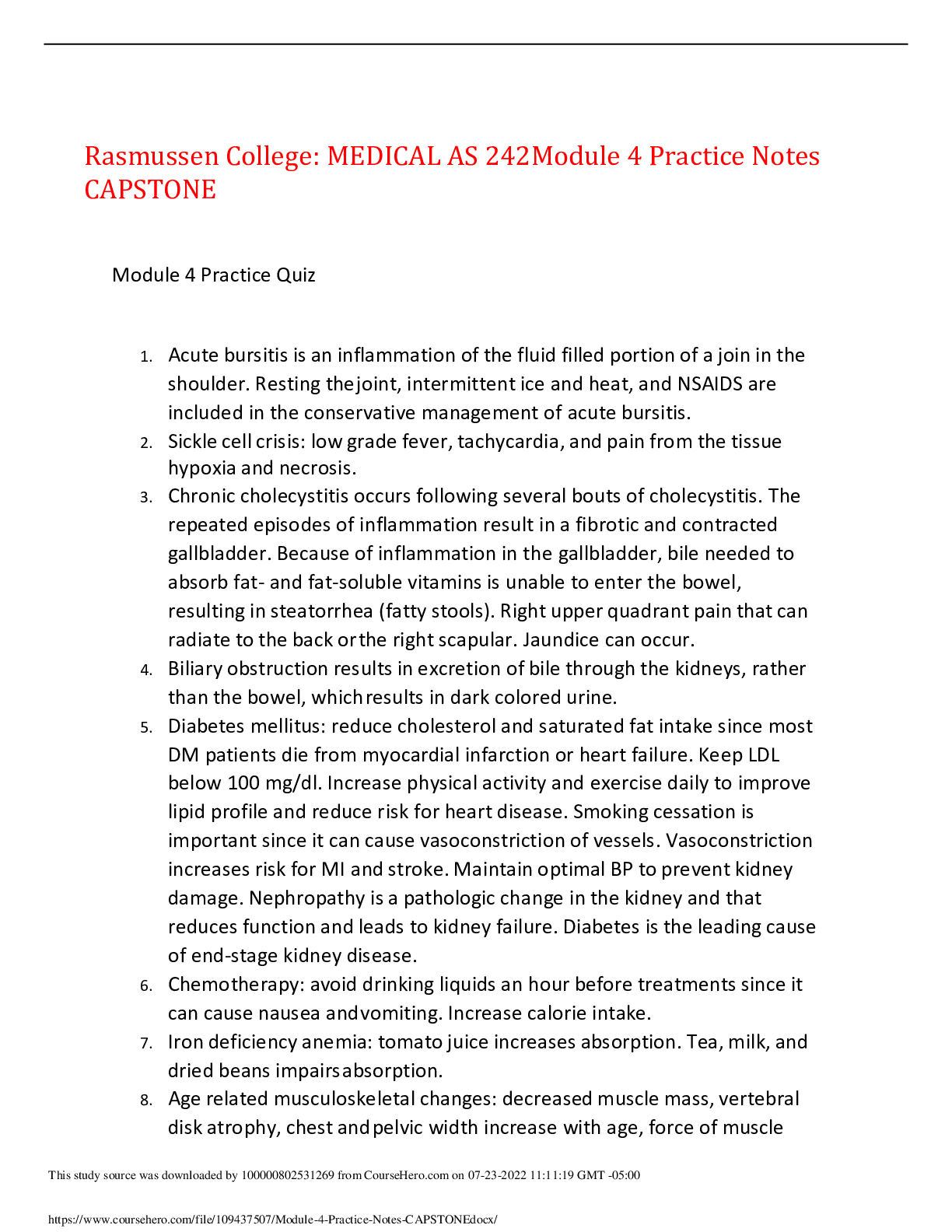
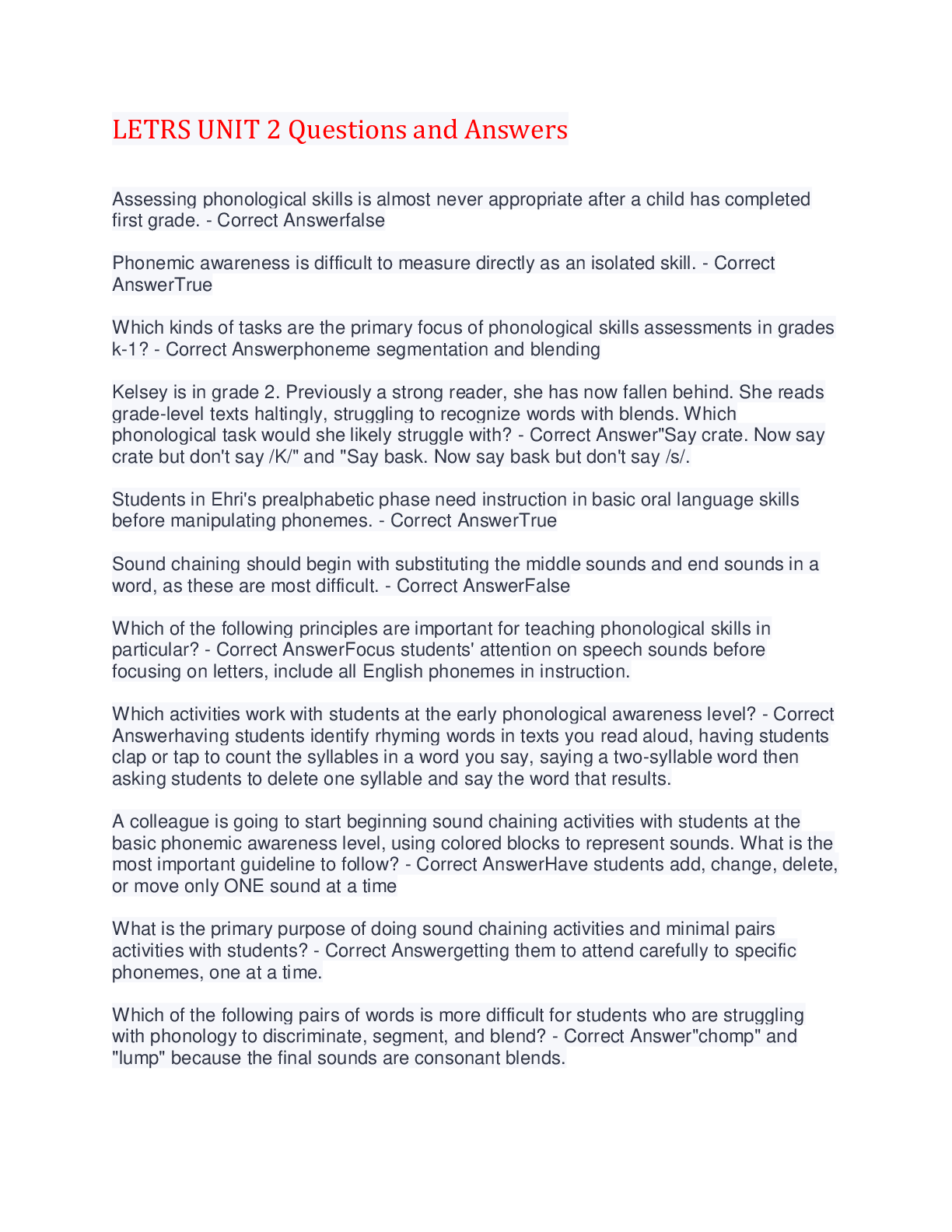
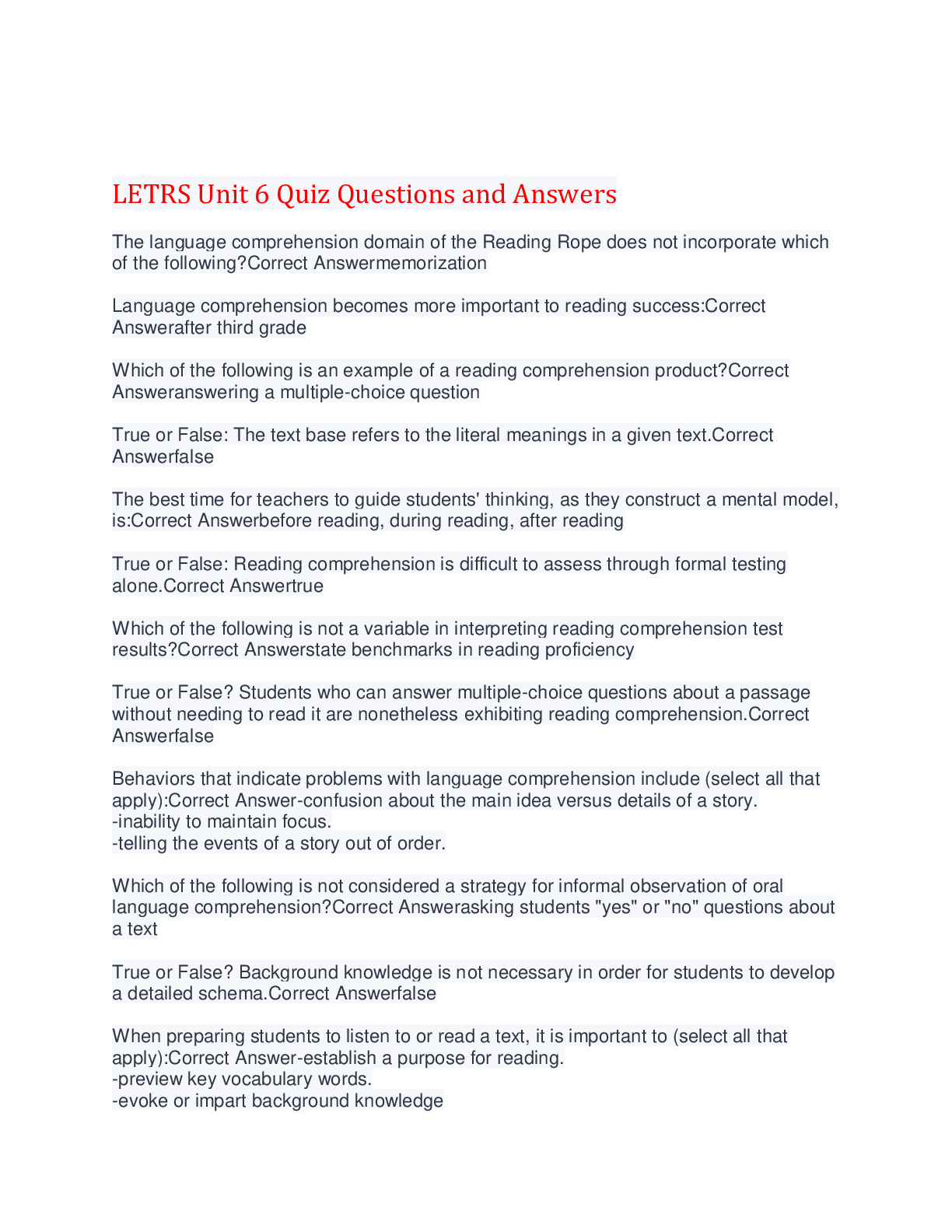
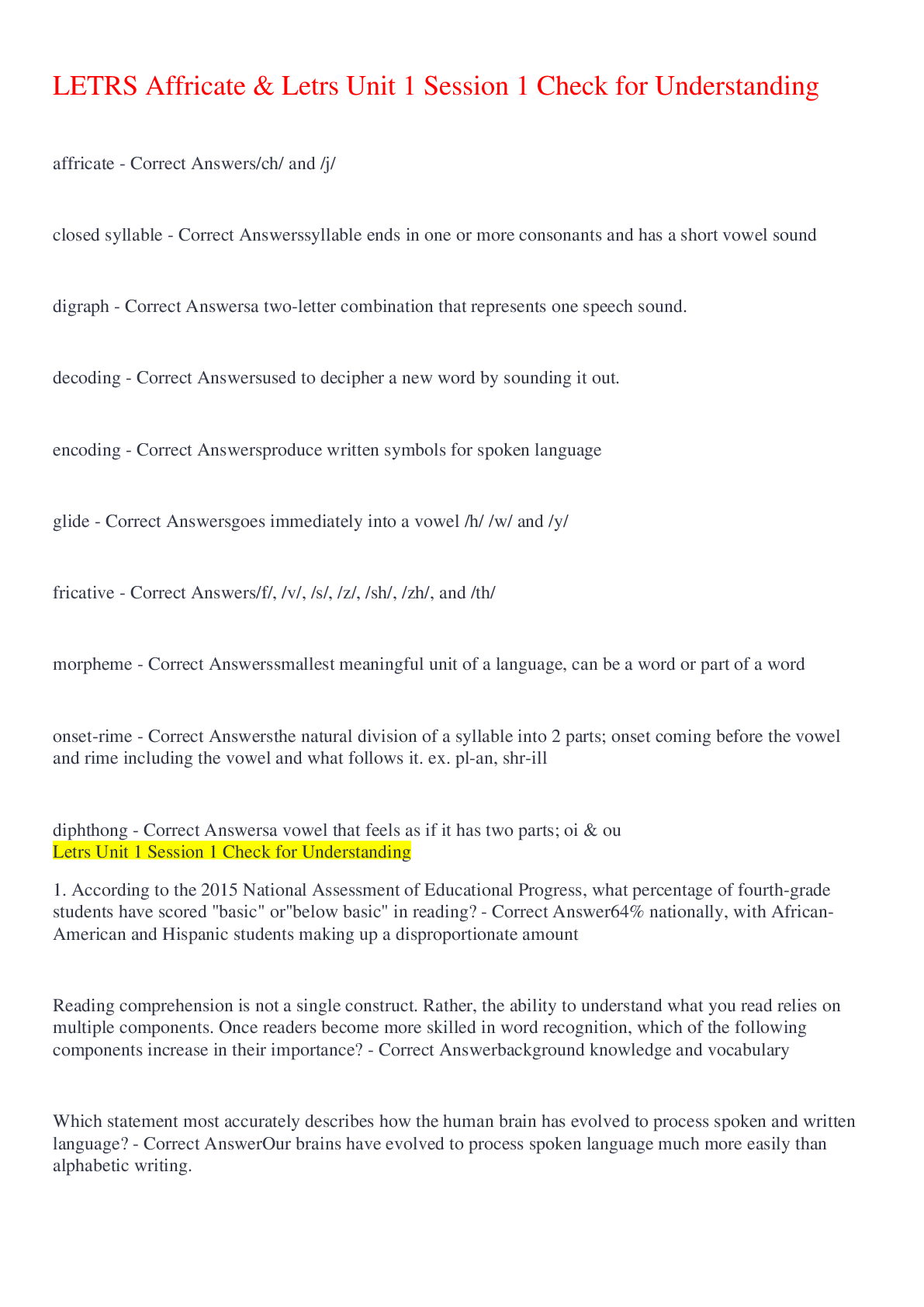
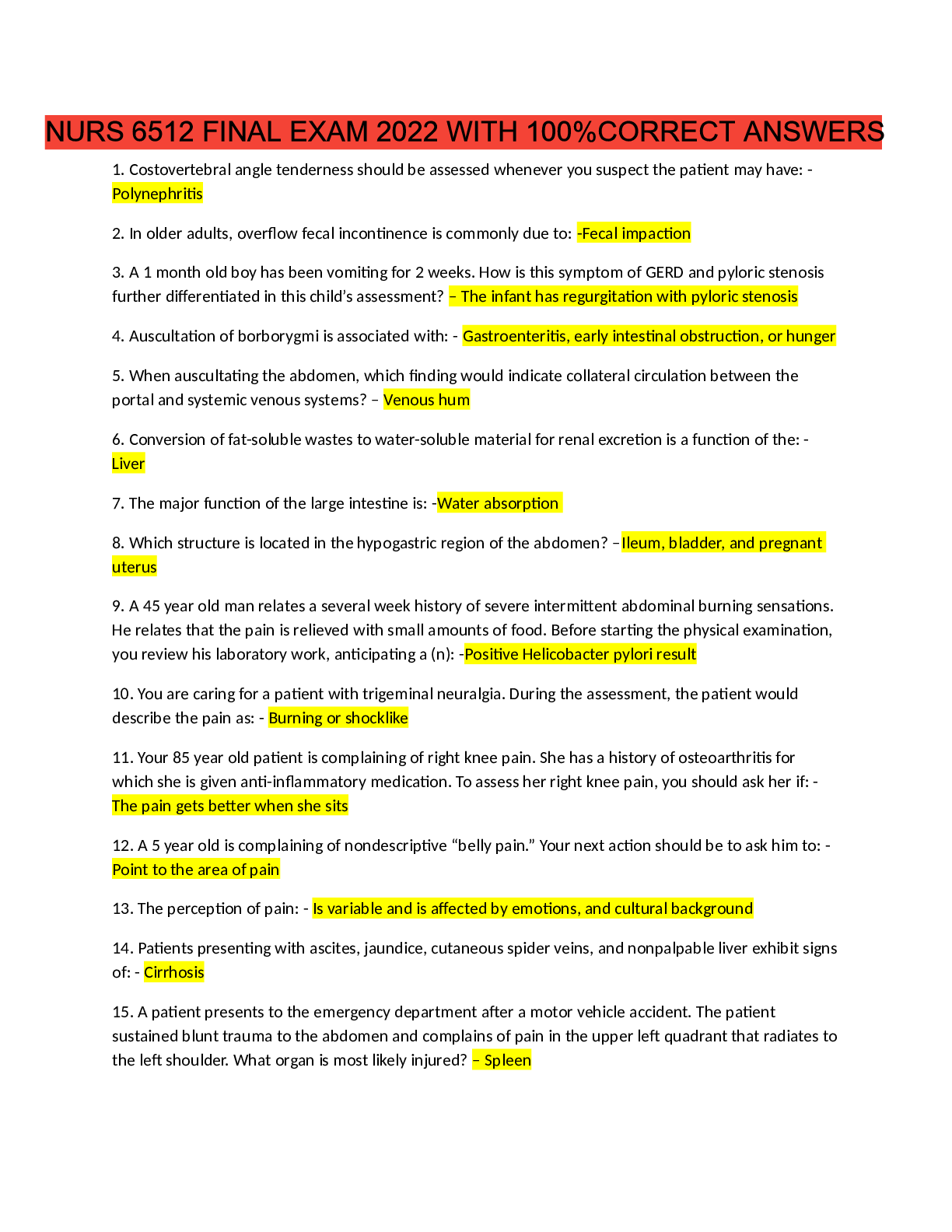
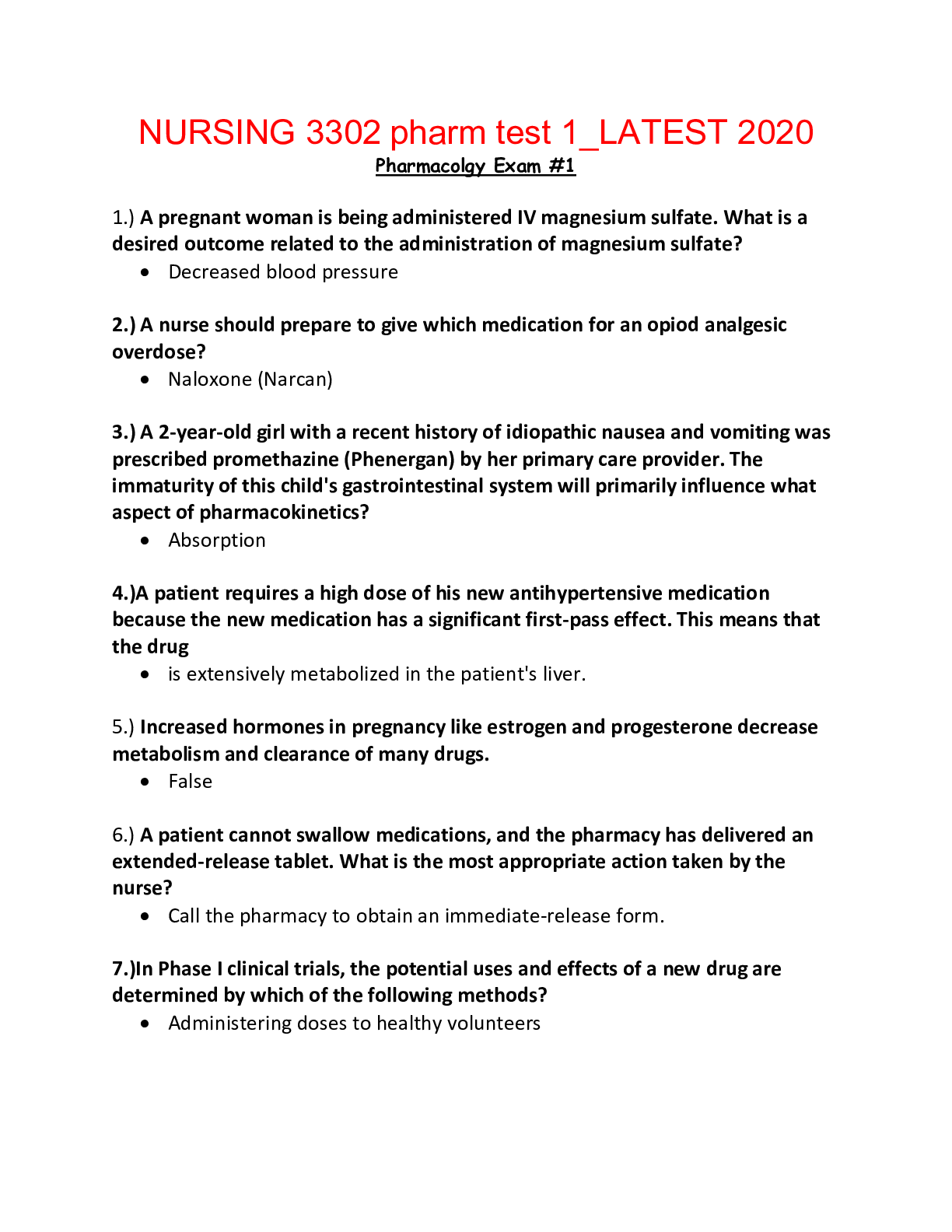
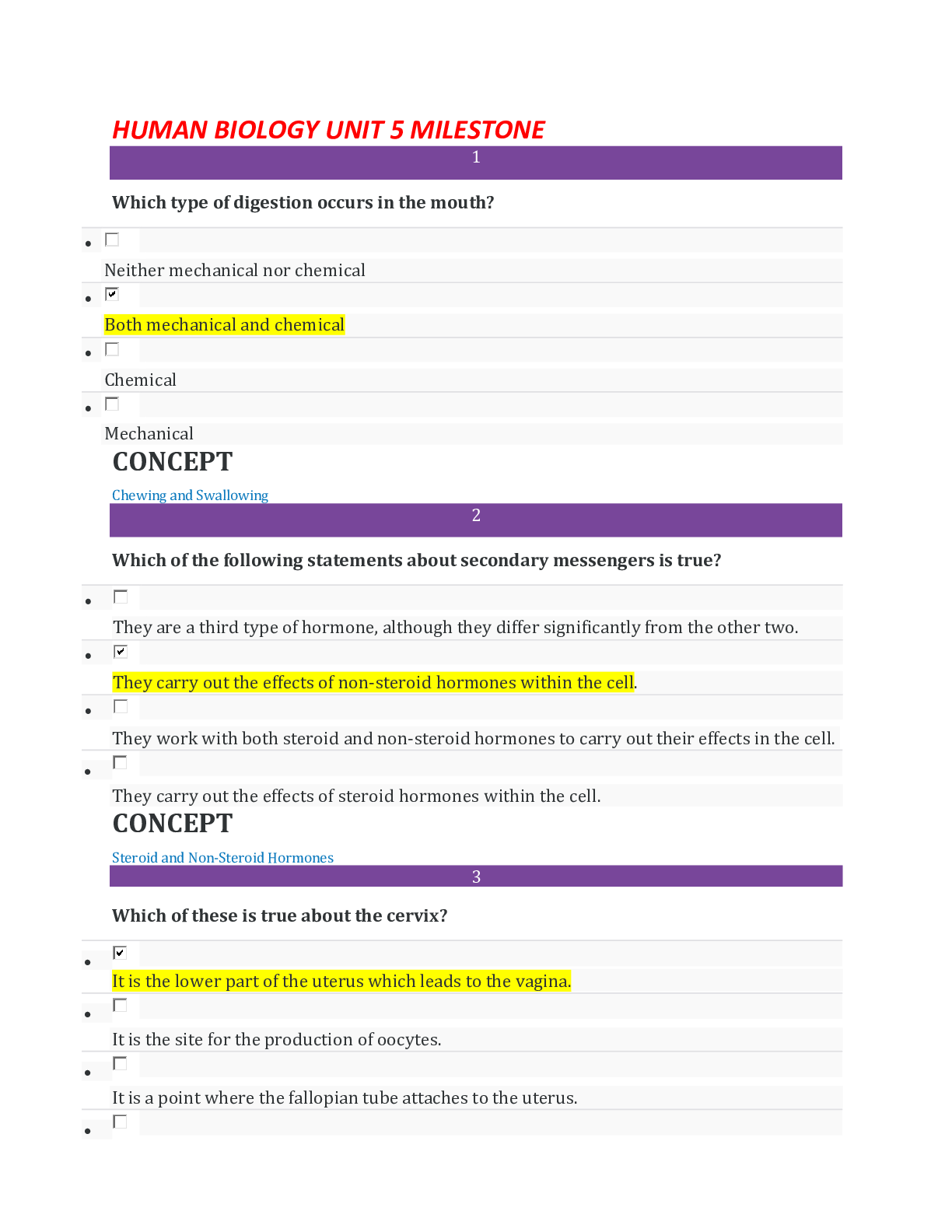
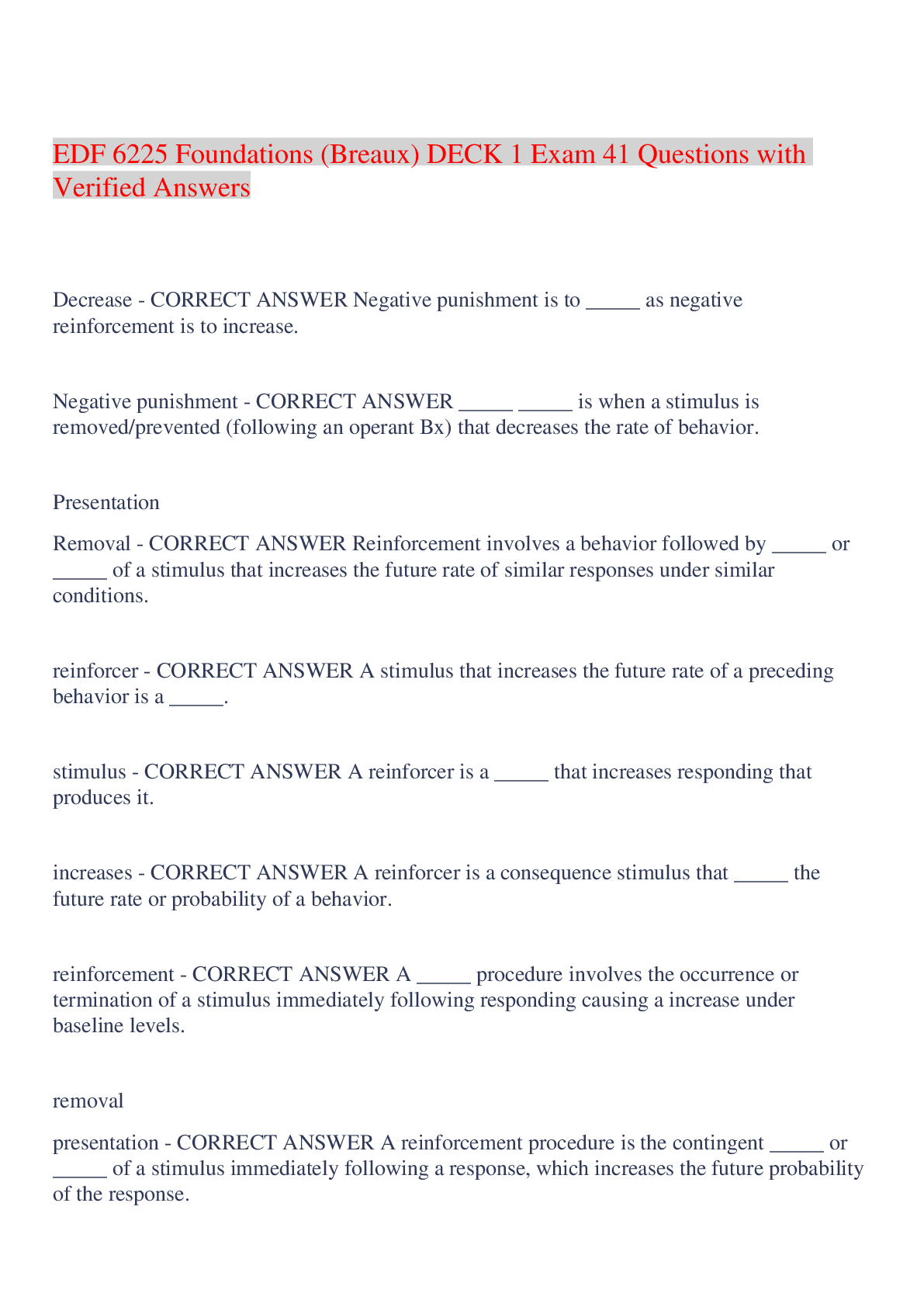
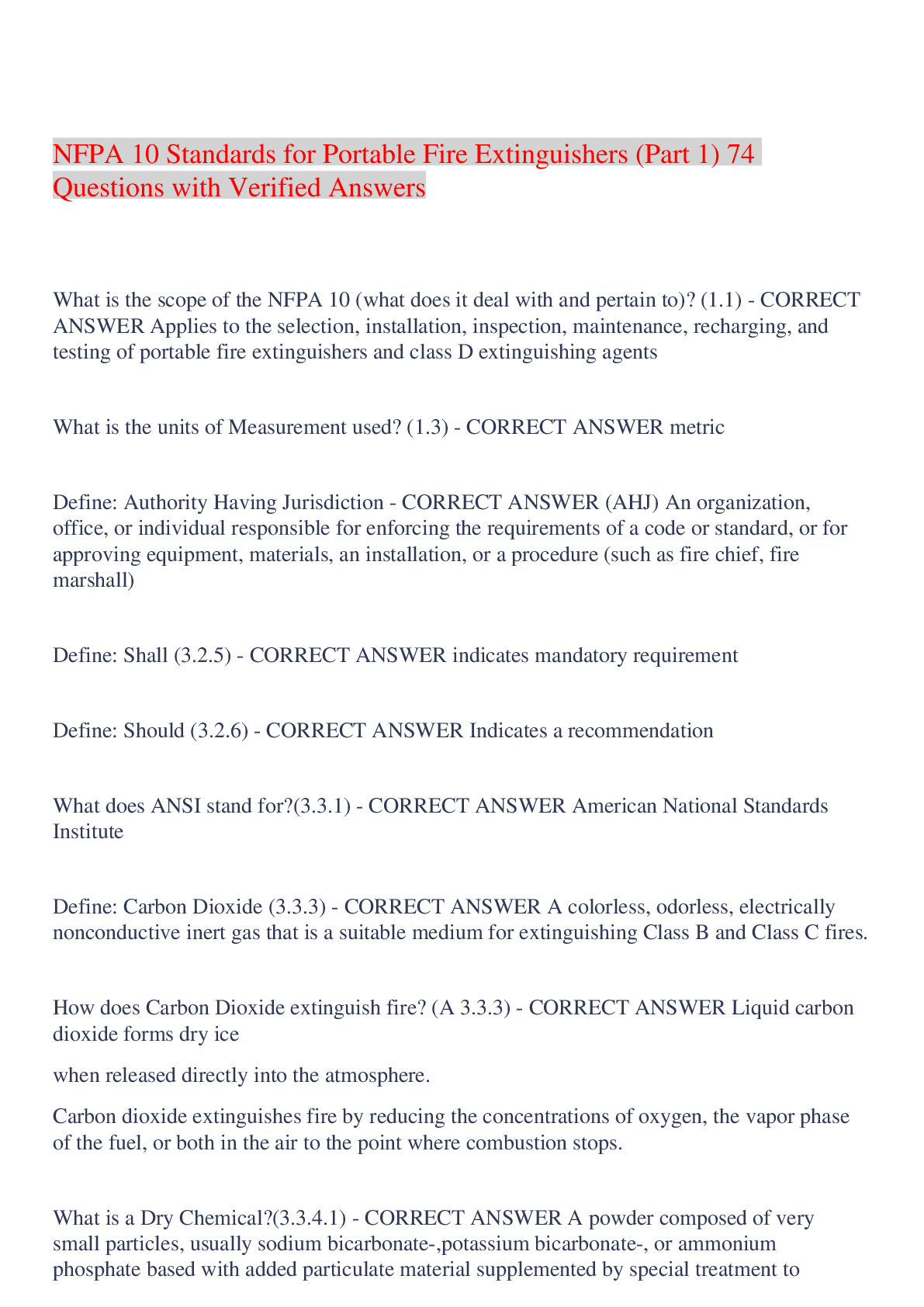
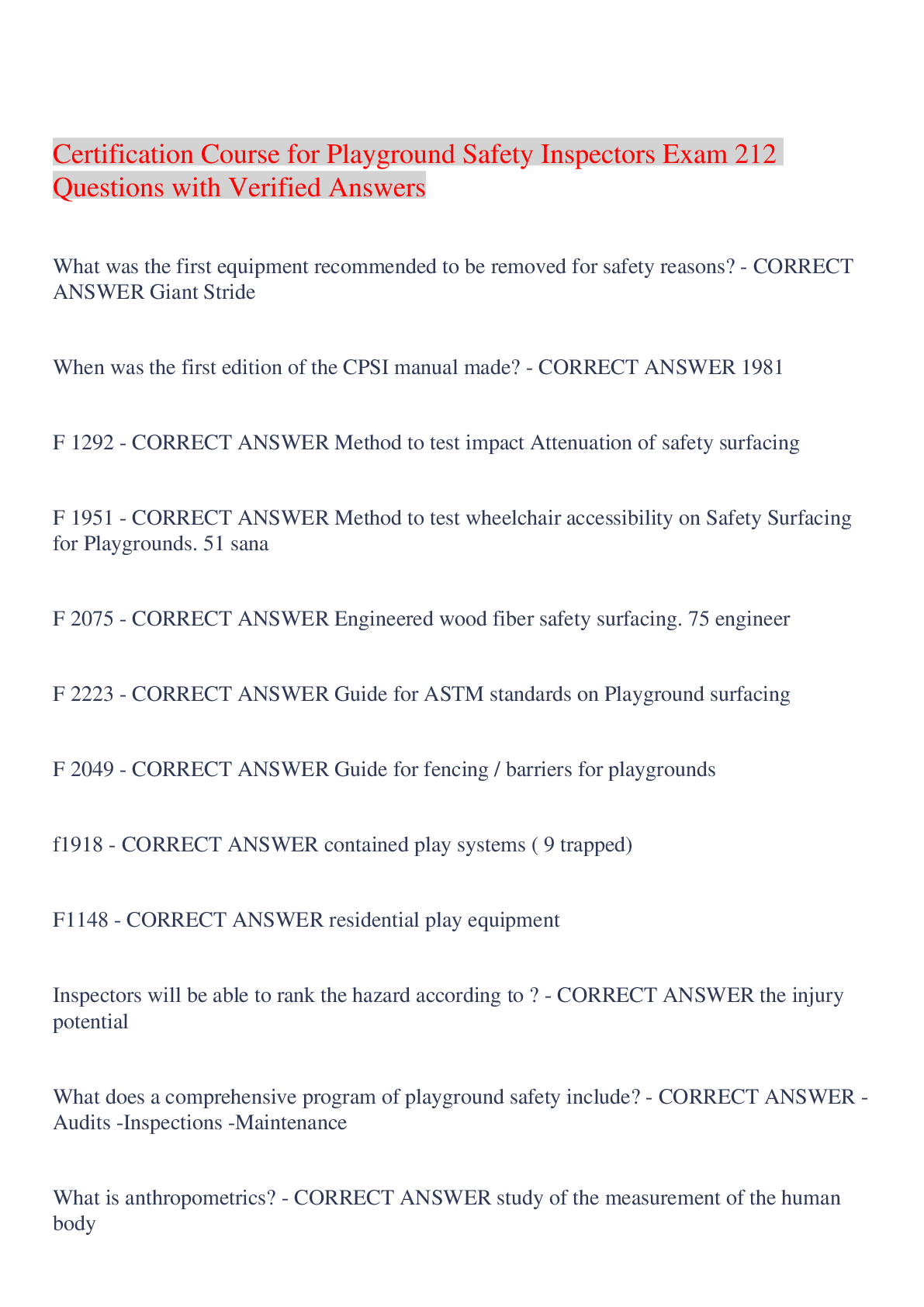
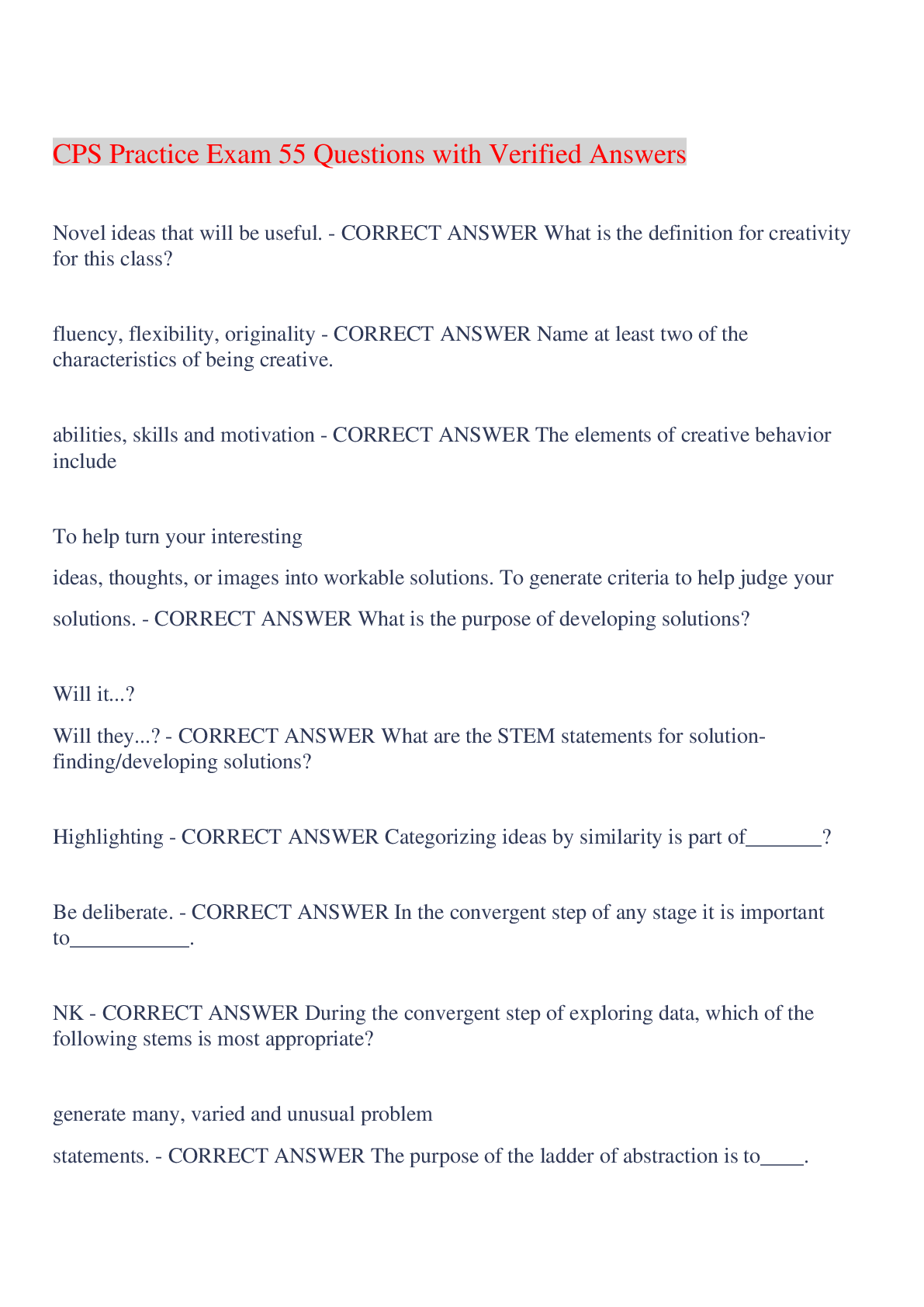
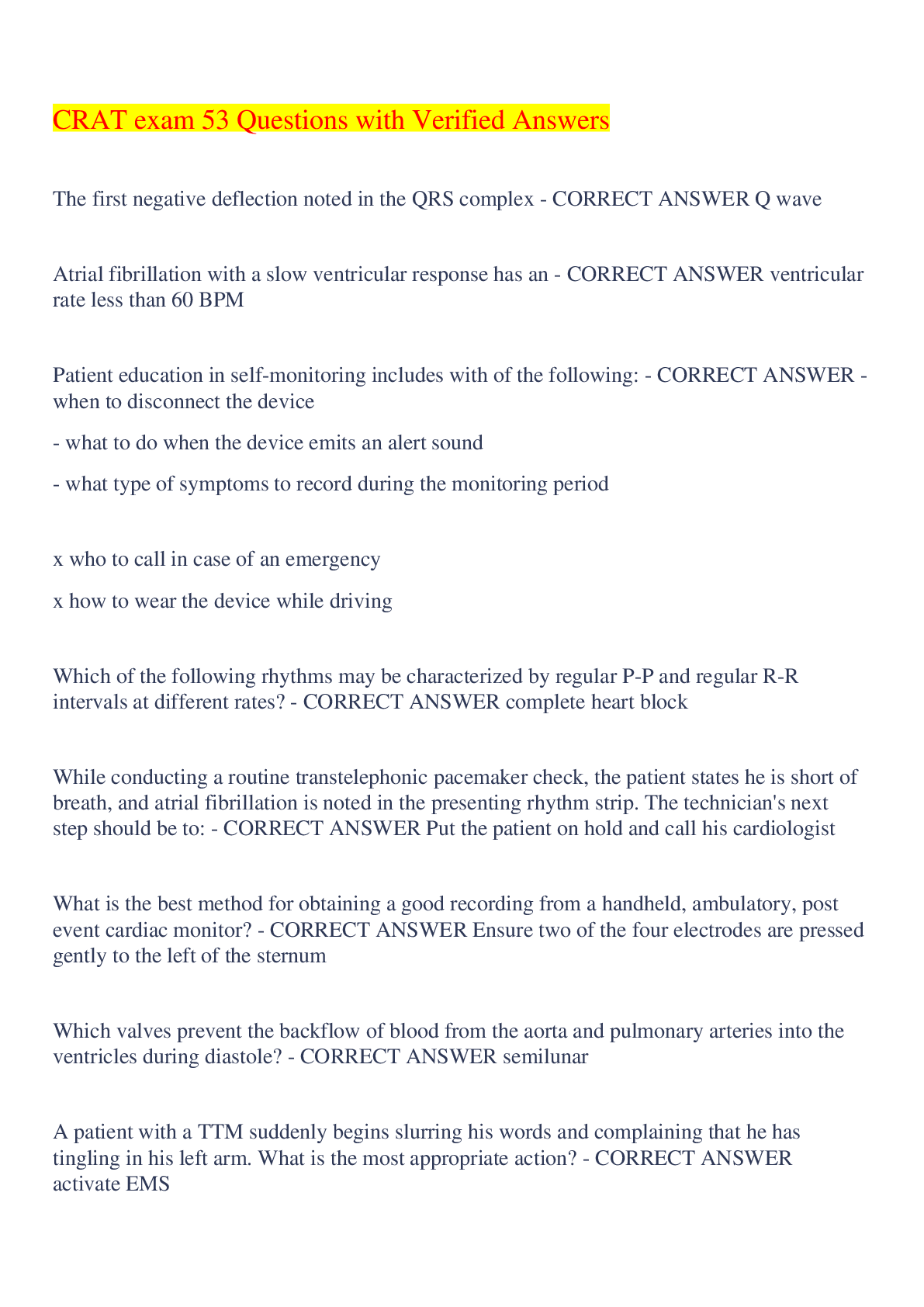

 Assessment question of Endocrinology (48 Questions) – South University Savannah.png)
